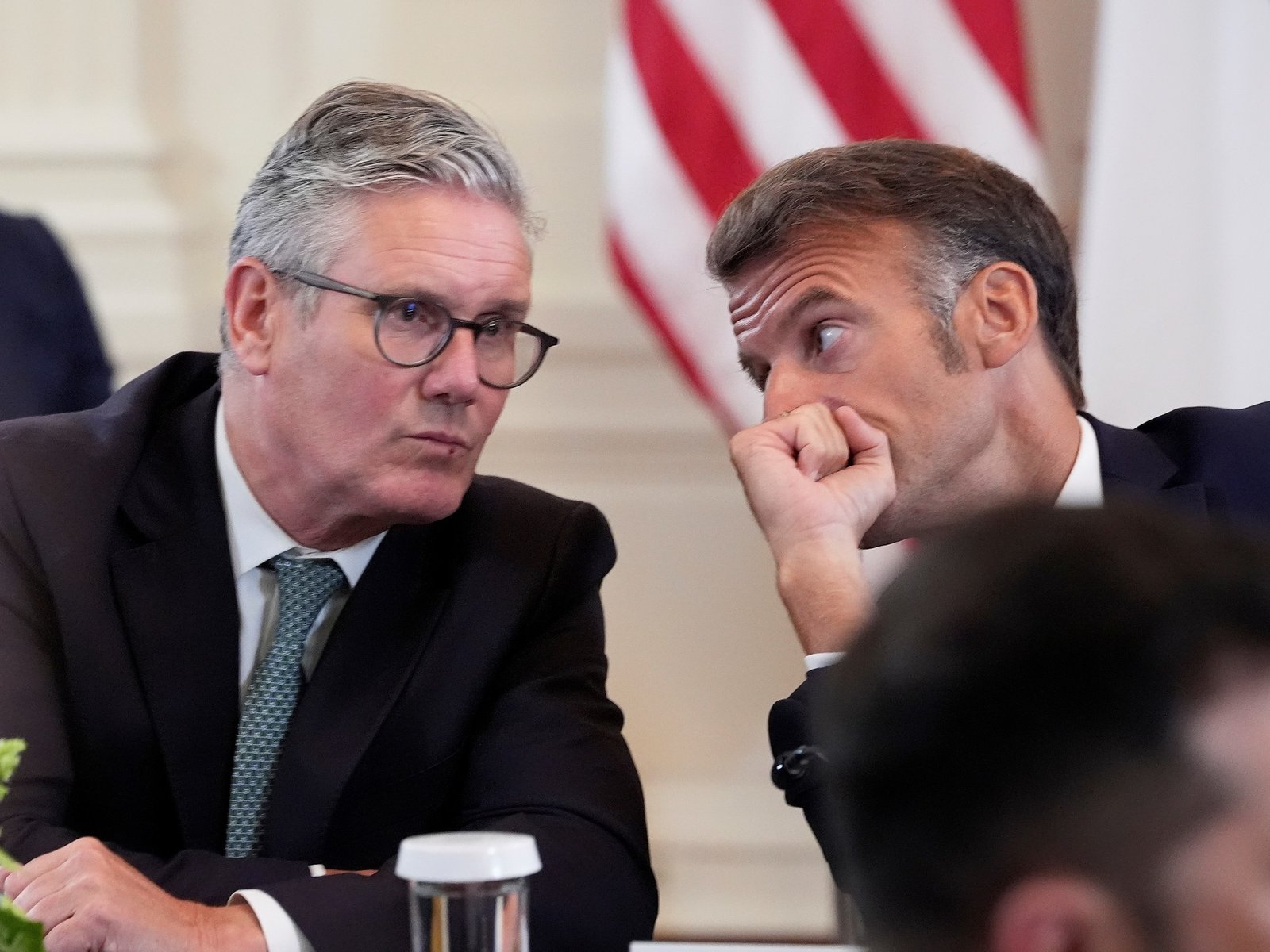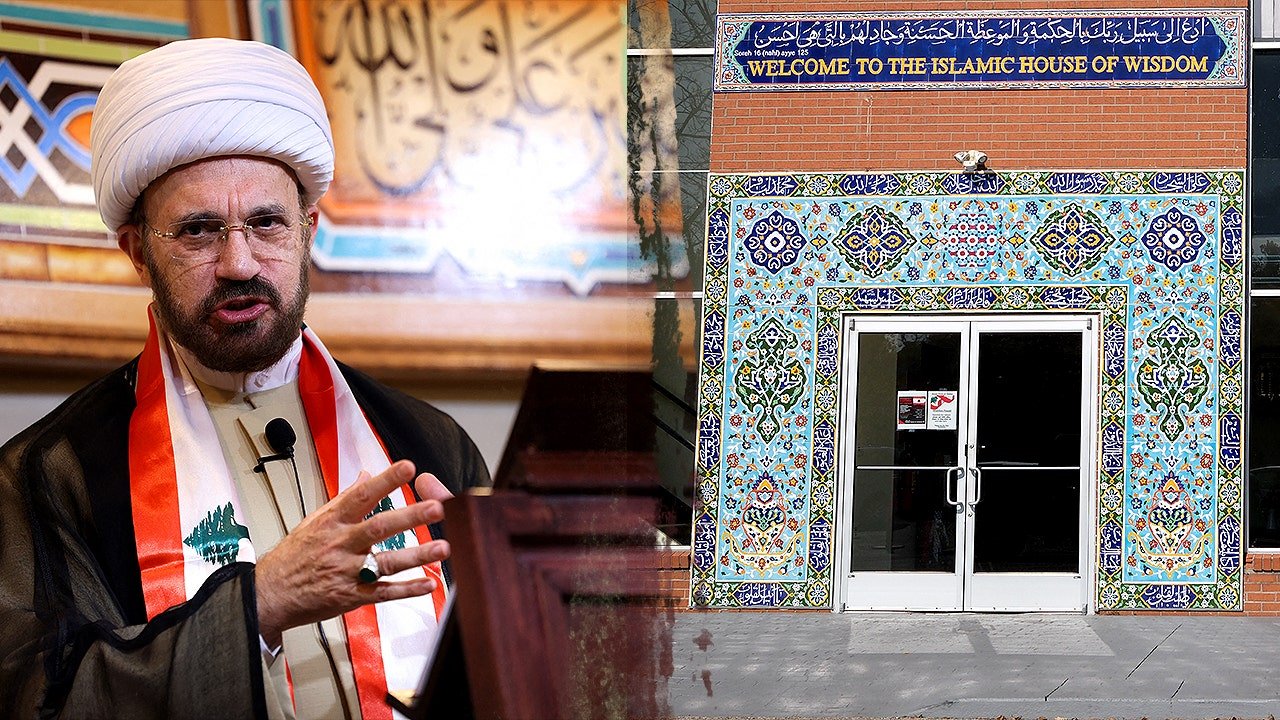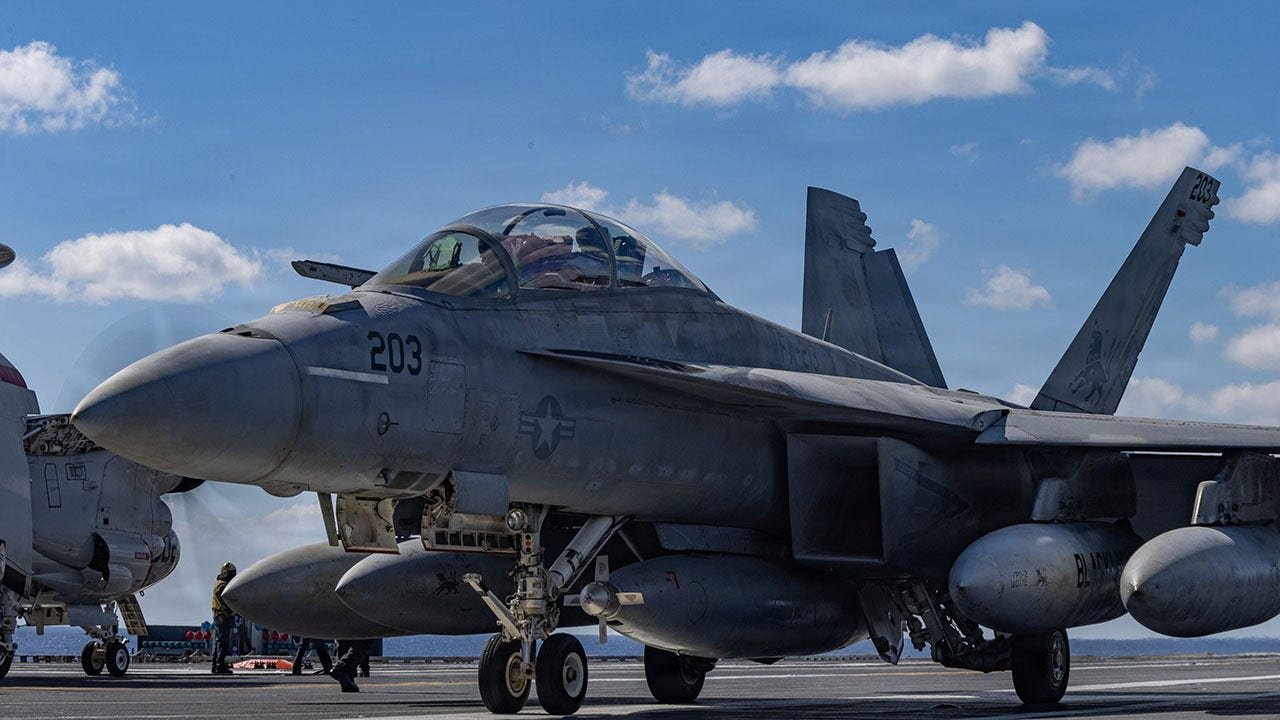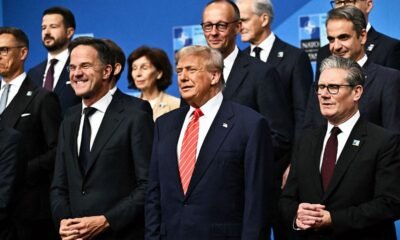INTERNACIONAL
El régimen de Xi Jinping criticó la “intimidación” y el “hegemonismo” de EEUU un día después de ceder a la presión comercial de Trump

Un día después de sellar un acuerdo con Estados Unidos para reducir aranceles por 90 días, el presidente de China, Xi Jinping, advirtió sobre las “prácticas intimidatorias” y el “hegemonismo”, en su primer discurso tras la tregua comercial, durante la inauguración del IV Foro Ministerial China-CELAC, frente a los presidentes de Brasil, Chile y Colombia.
Aunque no mencionó directamente a su contraparte, sus declaraciones fueron interpretadas como una crítica velada a las medidas adoptadas por la Casa Blanca.
“No hay ganadores en las guerras arancelarias ni en las guerras comerciales. La intimidación o el hegemonismo solo conducen al autoaislamiento”, afirmó Xi, en un tono que combinó advertencias con llamados a la cooperación multilateral.

También aseguró que “grandes cambios, nunca vistos en un siglo, se están acelerando”, y que en ese contexto la unidad entre los países del Sur Global es indispensable.
El acuerdo alcanzado el lunes en Suiza establece que Estados Unidos reducirá sus aranceles del 145 % al 30 % sobre productos chinos, mientras que Beijing bajará los suyos del 125 % al 10 % para bienes estadounidenses.
El pacto también suspende represalias no arancelarias y suaviza el régimen sobre los envíos ‘de minimis’, de menos de 800 dólares, al disminuir el arancel del 120 % al 54 %. Estas importaciones han sido fundamentales para plataformas como Shein, Temu y AliExpress.

Aunque la medida fue interpretada como una cesión de ambas partes, Xi evitó cualquier referencia a una concesión por parte de su régimen. Por el contrario, presentó a China como actor responsable, dispuesto a fortalecer la solidaridad con América Latina y el Caribe, región donde ha expandido su presencia en los últimos años.
“La independencia y la autonomía son nuestra gloriosa tradición. El desarrollo y la revitalización son nuestro derecho inherente. Y la equidad y la justicia son nuestra búsqueda común”, señaló el mandatario.
En el marco del foro, anunció una línea de créditos por 66.000 millones de yuanes (unos 9.200 millones de dólares) para los países de la CELAC, denominados en moneda china. La iniciativa forma parte de los esfuerzos de Beijing por internacionalizar el yuan y consolidar su influencia financiera en América Latina.

Durante la disputa arancelaria, que llevó los gravámenes a niveles superiores al 100 %, China mantuvo represalias firmes y se negó a ceder ante las presiones, al tiempo que desplegó una ofensiva diplomática que incluyó presentarse como defensor del libre comercio y del orden multilateral.
Según la cuenta estatal Yuyuan Tantian, afiliada al canal CCTV, “las contramedidas de China han tenido un impacto significativo, obligando al otro país a reducir sus tarifas tras las negociaciones”.
El foro ministerial, fundado en 2014, es parte de la estrategia china para contrarrestar la influencia histórica de Estados Unidos en América Latina, donde en 2023 el comercio bilateral superó los 500.000 millones de dólares, y China se consolidó como el principal comprador de soja brasileña, con el 73 % de las exportaciones.
En Washington, el presidente Donald Trump celebró la firma del acuerdo y dijo que “la relación con China es muy buena”. Aseguró que hablaría con Xi “quizá a finales de semana” y advirtió que, si no se alcanza un acuerdo comercial más amplio en los próximos 90 días, los aranceles volverán a subir “sustancialmente más”.
El discurso de Xi, pese al pacto alcanzado, mantiene la narrativa de resistencia del régimen chino frente a lo que considera presiones externas, e insiste en fortalecer alianzas estratégicas en regiones clave para sus intereses globales.
(Con información de EFE)
Diplomacy / Foreign Policy,Europe,MOSCOW
INTERNACIONAL
Francia y Gran Bretaña, rehenes en una guerra entre Estados Unidos e Irán que no consultaron

Francia en acción defensiva
Incómoda posición británica
La decepción de Trump
Irán atacó Chipre: la guerra en Europa
Los mullahs y cómo acentuar las contradicciones
“Cómo termina esta operación”
INTERNACIONAL
Radical US mosques honor Iran’s Supreme Leader’s ‘martyrdom’ with memorial services, eulogy: ‘Our leader’

NEWYou can now listen to Fox News articles!
Two United States-based mosques that have faced scrutiny for their ties to Iran held formal events to «honor» Ayatollah Khamenei after U.S. military forces took out the Islamic leader of Iran this weekend, including one mosque in Northern Virginia that referred to Khamenei as «our leader.»
Located in Manassas, Virginia, and Dearborn Heights, Michigan, the mosques both publicly advertised events eulogizing the slain leader. In a flyer for the «Potluck Iftar» honoring Khamenei, which is a ceremony where Muslims break their Ramadan fast, the Manassass Mosque, which has faced questions over alleged ties to Iran, referred to Khamenei as «our leader.» Meanwhile, at the Islamic House of Wisdom (IHW) in Dearborn Heights, which has also faced scrutiny over its ties to Iran, the center’s Imam Mohammad Ali Elahi called the U.S. military offensive «evil» and argued that it was based on false-pretenses.
«You promised that America First, and now we ended up to have Netanyahu first,» the Michigan-based Imam told his congregants after the attacks this weekend. «Now we realize that all their talk about nuclear [unintelligible] was a joke, it didn’t even exist. From the beginning talking about regime change, we want to change, because we don’t like it. So, starting an illegal – illegal war – and then go and bomb the house of the leader of the country. Where is justification for this? Where is their reason for this, at all?»
A worshiper enters the Islamic House of Wisdom located in Dearborn Heights, Michigan. (CHARLY TRIBALLEAU/AFP via Getty Images)
The Michigan-based Islamic worship center and its Imam also touted talking points from Iranian state media and officials that have not yet been confirmed, claiming hundreds of young girls were killed by a missile strike on a school in Iran. Hossein Kermanpour, a spokesperson for Iran’s health ministry, said Saturday that 60 young children were killed and 80 injured, but by Sunday Iranian officials were saying the death toll had risen to about 150, according to the Wall Street Journal. The Islamic Republic News Agency (IRNA) posted on X on Monday that the alleged death toll was now as high as 168.
According to The Guardian, Captain Tim Hawkins, a spokesperson for U.S. Central Command, indicated they were «aware of reports concerning civilian harm resulting from ongoing military operations,» adding that, «We take these reports seriously and are looking into them.»
CHASING THE APOCALYPSE: RADICAL SIITE CLERICS ON AMERICAN SOIL PREACH PROHETIC SHOWDOWN WITH US
«Why a school? Why not a military base or a missile base? They attack children first. It’s a form of their – again, call me crazy – but child sacrifice,» said a speaker at the IHW’s Ramadan program, who gave a speech alongside Imam Mohammad Ali Elahi. «This is a war against justice, against morality, against legality, against truth,» Imam Mohammad Ali Elahi added as he was speaking to his followers.
«Now we realize that all their talk about nuclear [unintelligible] was a joke, it didn’t even exist. From the beginning talking about regime change, we want to change, because we don’t like it,» the Imam continued.

On March 1, 2026, in Sana’a, Yemen, pro-Iran protesters brandish billboards depicting the Iranian Supreme Leader Ali Hosseini Khamenei, flags of Yemen and Iran, weapons, and chant slogans at a rally held to condemn the U.S.-Israel aerial attacks on Iran and the killing of Khamenei and several military officials. (Mohammed Hamoud/Getty Images)
IRAN’S SECURITY CHIEF ACCUSES TRUMP OF ‘ISRAEL FIRST’ POLICY, ‘DELUSIONAL FANTASIES’ IN REGION
Both the Manassas Mosque and the IWH were listed in a July 2023 letter that Congressional Republicans sent to former Attorney General Merrick Garland and former Director of National Intelligence during the Biden administration, Avril Haines. The letter called out a network of U.S.-based mosques throughout the country that have received financial funding from the Alavi Foundation, which lawmakers said «is a large foundation that has been in litigation for years because of allegations it operates on behalf of the Iranian regime, a state sponsor of terrorism,» or have other close ties to the Iranian regime.
«The Imam of IHW, Mohammad Ali Elahi, served as the head of ‘political ideology’ for the Iranian Navy in the 1980s, according to a publicly available Central Intelligence Agency report.» the letter asserts. «He personally claims to be ‘friends’ with three former Iranian Presidents, and since moving to the US, he has had seemingly non-stop contact with senior regime officials.»

Imam Mohammad Ali Elahi leads a prayer at the Islamic House of Wisdom in Dearborn Heights, Michigan, on October 18, 2024. Lebanese-Americans in the Detroit suburbs, watching with horror the unfolding devastation of the war in the Middle East, are contemplating denying Kamala Harris their votes to punish her administration for its support for Israel. (CHARLY TRIBALLEAU/AFP via Getty Images)
The letter, which included concerns also laid out in a report drafted by the George Washington University Program on Extremism, adds that IHW has been «a significant purveyor of extremist propaganda, in line with the Iranian regime’s views.»
CLICK HERE TO DOWNLOAD THE FOX NEWS APP
The Manassas Mosque was among the groups that received financial funding from the Alavi Foundation, reportedly totaling around $200,000. The mosque has also reportedly been gifted expensive relics from the Iranian regime, and alleged video of the inside reportedly shows the worship center filled with pictures of Islamic Revolutionary Guard Corps (IRGC) «martyrs» killed in Syria, a life-size cut-out of Khamenei and Iranian flags or other symbols.
Fox News Digital reached out to both mosques, but neither returned requests for comment in time for publication.
war with iran,iran,ali khamenei,michigan,virginia,foreign policy,politics
INTERNACIONAL
US casualties rise to 6 following Iranian retaliation for massive strikes

NEWYou can now listen to Fox News articles!
Six American military service members have been killed amid Iran’s retaliation over U.S. and Israeli attacks over the weekend, officials said Monday.
The U.S. Central Command, or CENTCOM, said U.S. forces recently recovered the remains of two previously unaccounted for service members from a facility that was struck during Iran’s initial attacks in the region.
«Major combat operations continue. The identities of the fallen are being withheld until 24 hours after next of kin notification,» a CENTCOM post on X states.
Following U.S. attacks that killed Iranian Supreme Leader Ayatollah Ali Khamenei, Tehran launched a series of strikes on U.S. military bases in Bahrain, Iraq, Jordan, Kuwait, the United Arab Emirates, Qatar and Saudi Arab, as well as against Israel.
On Monday, Gen. Dan Caine, chairman of the Joint Chiefs of Staff, said more U.S. troops were headed toward the Middle East amid escalations by Iran.
DOZENS OF TOP IRANIAN REGIME OFFICIALS, SUPREME LEADER KILLED IN ISRAELI STRIKES
A U.S. Navy fighter jet on an aircraft carrier. U.S. Central Command on Monday said six American military service members have been killed in Iranian strikes. (U.S. Central Command)
The U.S. mission in Iran, Caine said, is to «prevent Iran from (the) ability to project power outside its borders.»
War Secretary Pete Hegseth said the mission is to prevent Tehran from producing a nuclear weapon, as well as destroying some of its military capabilities.
Over the weekend, Iran had 11 ships in the Gulf of Oman where it has disrupted commercial shipping, CENTCOM said, but that number declined to zero by Monday.
CLICK HERE TO DOWNLOAD THE FOX NEWS APP
«The Iranian regime has harassed and attacked international shipping in the Gulf of Oman for decades. Those days are over,» it said. «Freedom of maritime navigation has underpinned American and global economic prosperity for more than 80 years. U.S. forces will continue to defend it.»
war with iran,iran,military,us

 CHIMENTOS2 días ago
CHIMENTOS2 días agoDestrozaron a Andrea del Boca por el terrible pecado que tuvo en Gran Hermano: “La quiero presa”, apuntaron contra la actriz por un detalle en la cocina

 CHIMENTOS2 días ago
CHIMENTOS2 días ago¡Tensión en vivo! Aníbal Pachano y Nancy Pazos protagonizaron un cruce explosivo en la mesa de Mirtha Legrand

 CHIMENTOS3 días ago
CHIMENTOS3 días agoLas predicciones más importantes en la vida de cada signo del horóscopo en marzo, según Jimena La Torre: «Será un cambio rotundo»




























